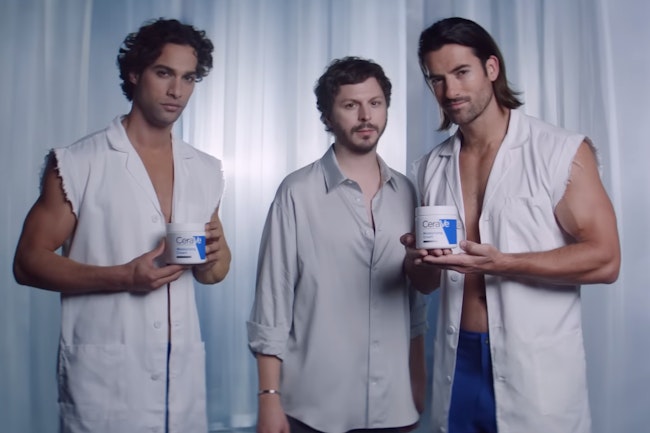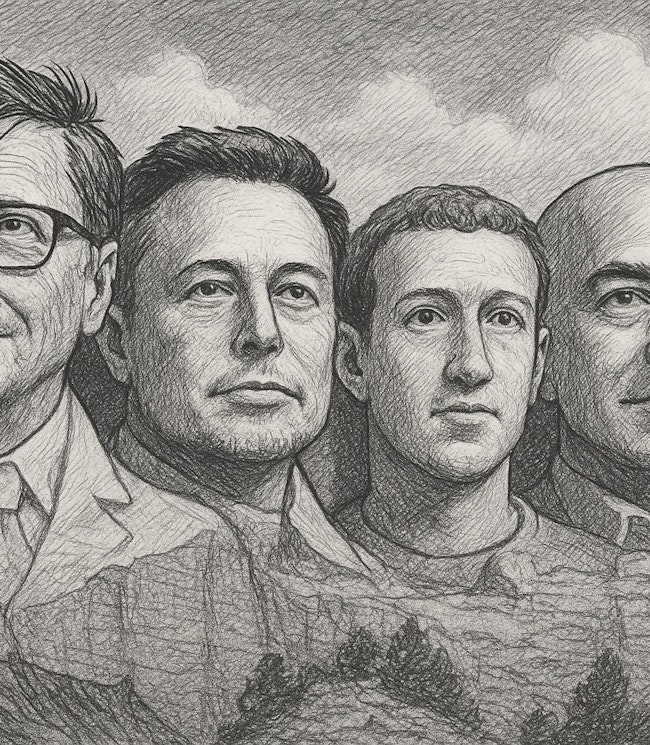
words by
By Ryan Claybaugh with additional contributions by Naomi Augustin and Scott Padden
March 26, 2024
culture hack
Rise of Dopamine Culture
Bzzz. Bzzz. Bzzz. Bzzz. Ding. Swipe. Tap. Tap. Swipe. Ding. Swipe. Set it down. Start to foc-Bzzz. Tap. Tap tap. Laugh. Scroll. Scroll. Scroll. In a never ending cycle. We’re all guilty of it. The rise of instant gratification due to technology has created a dopamine feedback loop ingrained in the depths of our society. For brands, that means heightened pressure to get eyes on content. Sometimes this leads to short attention spans not only in consumers but in company’s internal culture as well, which amplifies corporate short-termism. This isn’t a new phenomenon, affecting society for the last 30 or so years, but the degree that technology has affected us in such a way is relatively new. The newspaper articles of yesteryear gave way to 26 minute shows on the television which became minute long videos on the internet that turned into 15 second clips in your hand to now an average time of 3.3 seconds before swiping.
The proliferation of short-termism has led to an escalation of quarterly thinking, losing sight of the big picture. Long-term thinking enables a company to become a heritage brand, a brand as ingrained into an idea, product, or lifestyle as technology is on us all. Few brands are successfully balancing the need for decade-long brand building and the constant thirst of profit-driven shareholders. Those that do are the main drivers of culture.
The decline in attention spans amongst consumers has led to a desire for instant gratification on both sides of the consumption cycle. We’ve seen it in recent years with brands losing the big picture starting to affect their profits as well. Long lived was the era of the Marvel Cinematic Universe, but after their epic conclusion of the Infinity Saga, they’ve focused on quantity versus quality. Pumping out IP for Disney Plus, Disney is losing their narrative driven stories in favor of propping up a streaming service. Like others, Marvel is losing sight of its brand value, and locked in the mindset of quarterly profit.
Recently, AI is driving instant gratification to an even greater extent. Why hire an artist, writer, programmer, editor, or even a customer service rep when AI can do it? What happens when that AI is functionally better? Klarna recently switched some customer service interactions to AI and it’s expected to increase profits by $40 million this year. The chatbot's efficiency has resulted in fewer errors, a 25% decrease in repeat inquiries and reduced average conversation times from 11 to 2 minutes. Klarna has also laid off 700 people in the last year. This de-attachment of the emotional component isn’t obvious yet, but as more companies adopt this attitude and these technologies, more consumers will become immune to these interactions. Consumers will start to avoid unauthentic brands who don’t value human connection enough to hire humans. AI adoption is going to be driven by profit-minded companies who will lose sight of the larger story: the need for human touch in interactions will be embraced much more so than it is in our current tech-induced coma.
The decline of big picture thinking is bad both for long-term profit and brands’ cultural staying power. The indulgence of hyper-fixated investors and consumers with rapid consumption is rampant, but there are many companies that have learned to balance the art of profitable, long-term relevance. Louis Vouitton has been in business for over 150 years and they have led in cultural relevance for decades. Their commitment to trusting their creative directors while remaining true to their tenets of quality and exclusivity has enabled them to think both short-and-long term. When you buy LV you know you’re buying quality products that will last a lifetime that are also contemporary and bleeding-edge in the fashion world, a statement piece that will splash now and in 50 years.
To be relevant is to not only embrace trends and hype, but to stay true to long-term thinking. Dopamine culture is all around us, but if we learn to embrace a more serotonin-like mindset, we can begin to move forward. Serotonin culture enables brands to work towards awareness, sustainability, and relevance while hacking short-termism. Brands able to capitalize on short attention spans while building towards something long-term will keep consumers engaged over many years.
Another brand who embraces a serotonin culture is McDonalds. The fast food giant is world renowned and yet their golden arches haven’t gone bland. Without letting go of their brand core of quality, consistent fast food they’ve embraced hype culture by partnering with brands such as Palace, Vetements, and a myriad of hip-hop stars. These partnerships don’t take precedence over their core values, they uplift the McDonalds’ brand so that it continues to reach new audiences while solidifying itself as a quality food brand with a penchant for the digital world.
The Dopamine to Serotonin transition is possible to achieve by shifting internal mindsets. While there is no catchall for adjusting, the following steps will make the transition more approachable and doable.
• Identify the brand north stars and be sure that all strategies and content created lead back to them. Beyonce creates music that can be embraced by the tiktok generation, but her greater long-term rollout across albums leads to greater engagement and cultural longevity.
• Be nimble, not reactionary. Consider trends, hype trains, and memes, but don’t hop on them without careful consideration whether it contributes to the long-term story.
• Think about what each story can continue to tell 4 quarters from now, not next quarter. Plan for the long-term first, engage the human side of the brand, and understand how consumers will react to more nuanced strategic goals that aren’t reliant on hype.
Oftentimes the truest innovations stem not from rapid cycles of instant gratification but from the patient nurturing of ideas, the cultivation of genuine human connection, and the commitment to long-term thinking. In embracing this mind shift, brands lay the groundwork for a cultural legacy that withstands the passage of time—a testament to the enduring power of thoughtful, long-term thinking in an era dominated by the allure of the instant. To navigate this change demands not just a change in tactics but a fundamental shift in the philosophy that underpins brand strategy—an evolution from the frenetic highs of dopamine to the steadier, more profound allure of serotonin.





















